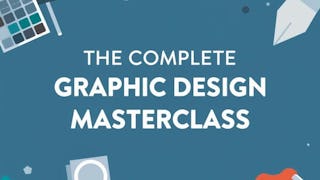- Browse
- Music Theory
Music Theory Courses
Music theory courses can help you learn chord progressions, scales, rhythm, and harmony. You can build skills in reading sheet music, analyzing compositions, and creating original pieces. Many courses introduce tools like notation software and digital audio workstations, that support composing and arranging music. You'll also explore concepts such as counterpoint, form, and orchestration, allowing you to apply your knowledge in various musical genres and styles.
Popular Music Theory Courses and Certifications
 Status: Free TrialFree TrialB
Status: Free TrialFree TrialBBerklee
Skills you'll gain: Music Theory, Music, Musical Composition, Instrumental Music, Music Performance, Classical Music
5·Rating, 5 out of 5 stars35 reviewsBeginner · Course · 1 - 3 Months
 Status: Free TrialFree TrialU
Status: Free TrialFree TrialUUniversity of California, Irvine
Skills you'll gain: Oral Comprehension, Language Competency, English Language, Vocabulary, Language Learning, Grammar
4.8·Rating, 4.8 out of 5 stars1.2K reviewsBeginner · Specialization · 3 - 6 Months
 Status: Free TrialFree TrialU
Status: Free TrialFree TrialUUniversity of California San Diego
Skills you'll gain: Drug Development, Pharmaceuticals, Pharmacology, Pre-Clinical Development, Clinical Trials, Biotechnology, Bioinformatics, Precision Medicine, Molecular Biology
4.6·Rating, 4.6 out of 5 stars3.9K reviewsBeginner · Course · 1 - 3 Months
 Status: NewNewStatus: PreviewPreview
Status: NewNewStatus: PreviewPreviewSkills you'll gain: Color Theory, Typography, Adobe Express, Visual Design, Color Matching, Design, Graphic Design, Creative Design, Design Elements And Principles, Layout Design, Branding
Beginner · Course · 1 - 4 Weeks
 Status: NewNewStatus: Free TrialFree TrialA
Status: NewNewStatus: Free TrialFree TrialAAdvancing Women in Tech
Skills you'll gain: Analytical Skills, Emotional Intelligence, Simulations
Intermediate · Course · 1 - 4 Weeks
 Status: NewNewStatus: Free TrialFree TrialS
Status: NewNewStatus: Free TrialFree TrialSSkillshare
Skills you'll gain: Logo Design, Packaging and Labeling, Adobe Illustrator, Brand Strategy, Competitive Analysis, Presentations, Content Creation, Target Audience, Storytelling, Branding, Color Theory, Product Design, Typography, Design Strategies, Social Media, Graphic Design, Layout Design, Animations, Design Software, Graphic and Visual Design Software
4.5·Rating, 4.5 out of 5 stars11 reviewsBeginner · Specialization · 3 - 6 Months
 Status: PreviewPreviewC
Status: PreviewPreviewCColumbia University
Skills you'll gain: International Finance, Derivatives, Financial Systems, Balance Sheet, Financial Market, Payment Systems, Banking, Capital Markets, Economics, Market Liquidity, Financial Regulation, Finance, Market Dynamics
4.9·Rating, 4.9 out of 5 stars1.7K reviewsMixed · Course · 3 - 6 Months
 Status: NewNewStatus: Free TrialFree TrialA
Status: NewNewStatus: Free TrialFree TrialAAdvancing Women in Tech
Skills you'll gain: AI Workflows, Retrieval-Augmented Generation, Business Process Automation, Multimodal Prompts, Image Analysis
Intermediate · Course · 1 - 4 Weeks
 Status: Free TrialFree TrialR
Status: Free TrialFree TrialRRice University
Skills you'll gain: Portfolio Management, Portfolio Risk, Financial Market, Investments, Securities (Finance), Financial Systems, Securities Trading, Asset Management, Behavioral Economics, Capital Markets, Investment Management, Equities, Performance Measurement, Finance, Financial Services, Performance Analysis, Risk Management, Return On Investment, Market Liquidity, Wealth Management
4.5·Rating, 4.5 out of 5 stars2.6K reviewsBeginner · Specialization · 3 - 6 Months
 Status: PreviewPreviewU
Status: PreviewPreviewUUniversity of Arizona
Skills you'll gain: Physical Science, Physics, Engineering, Scientific, and Technical Instruments, Ancient History, Chemistry, electromagnetics, Biology, Global Positioning Systems, Scientific Methods, Scientific Visualization, Research, Simulations
4.8·Rating, 4.8 out of 5 stars3.9K reviewsBeginner · Course · 1 - 3 Months
 Status: NewNewStatus: PreviewPreviewN
Status: NewNewStatus: PreviewPreviewNNortheastern University
Skills you'll gain: Engineering Management, Project Risk Management, Innovation, Risk Management, Project Management, Project Design, Project Management Life Cycle, Cost Management, Creativity, Planning, Organizational Structure, Project Planning, Creative Thinking, Budgeting, Work Breakdown Structure, Leadership and Management, Organizational Strategy, Agile Methodology, Resource Allocation
Beginner · Course · 1 - 3 Months
 Status: NewNewStatus: Free TrialFree TrialC
Status: NewNewStatus: Free TrialFree TrialCCisco Learning and Certifications
Skills you'll gain: Session Initiation Protocols, System Configuration, Collaborative Software, Configuration Management, Network Administration, Telecommunications, Communication Systems, Systems Integration, Scalability, Digital Communications
Beginner · Course · 1 - 3 Months
Searches related to music theory
In summary, here are 10 of our most popular music theory courses
- Desenvolvendo sua musicalidade: Berklee
- The Pronunciation of American English: University of California, Irvine
- Drug Discovery : University of California San Diego
- Exploring Design Basics with Adobe Express: Adobe
- AI Collaboration with Claude: Advancing Women in Tech
- The Complete Graphic Design Masterclass: Skillshare
- Economics of Money and Banking: Columbia University
- AI Automation with Claude: Advancing Women in Tech
- Investment and Portfolio Management: Rice University
- Astronomy: Exploring Time and Space: University of Arizona










